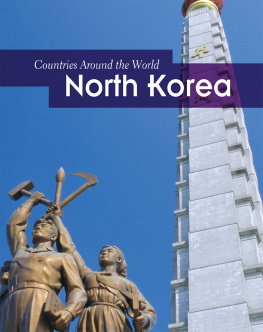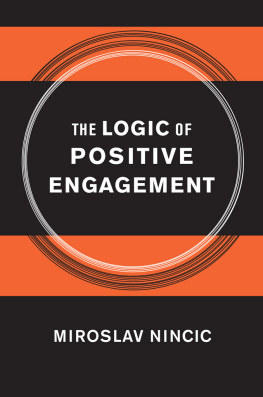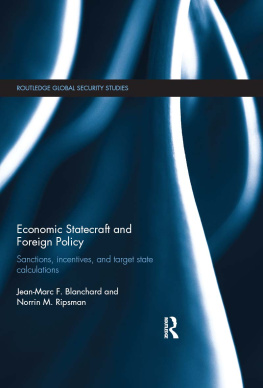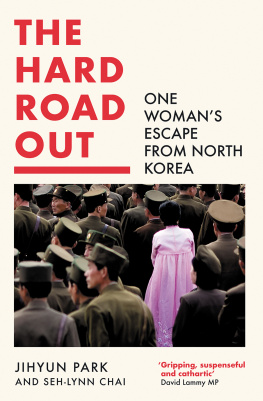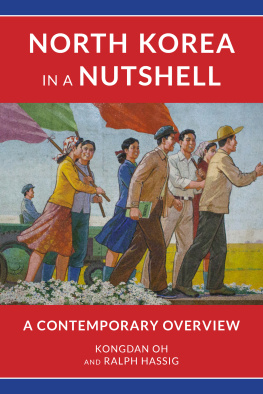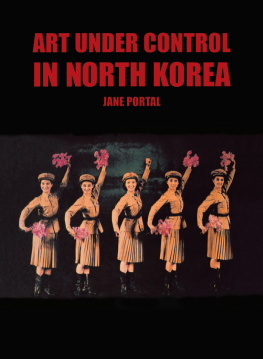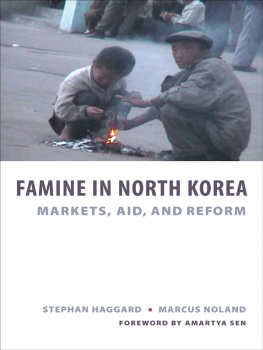Stephan Haggard - Hard Target: Sanctions, Inducements, and the Case of North Korea
Here you can read online Stephan Haggard - Hard Target: Sanctions, Inducements, and the Case of North Korea full text of the book (entire story) in english for free. Download pdf and epub, get meaning, cover and reviews about this ebook. year: 2017, publisher: Stanford University Press, genre: Politics. Description of the work, (preface) as well as reviews are available. Best literature library LitArk.com created for fans of good reading and offers a wide selection of genres:
Romance novel
Science fiction
Adventure
Detective
Science
History
Home and family
Prose
Art
Politics
Computer
Non-fiction
Religion
Business
Children
Humor
Choose a favorite category and find really read worthwhile books. Enjoy immersion in the world of imagination, feel the emotions of the characters or learn something new for yourself, make an fascinating discovery.

- Book:Hard Target: Sanctions, Inducements, and the Case of North Korea
- Author:
- Publisher:Stanford University Press
- Genre:
- Year:2017
- Rating:3 / 5
- Favourites:Add to favourites
- Your mark:
- 60
- 1
- 2
- 3
- 4
- 5
Hard Target: Sanctions, Inducements, and the Case of North Korea: summary, description and annotation
We offer to read an annotation, description, summary or preface (depends on what the author of the book "Hard Target: Sanctions, Inducements, and the Case of North Korea" wrote himself). If you haven't found the necessary information about the book — write in the comments, we will try to find it.
Hard Target: Sanctions, Inducements, and the Case of North Korea — read online for free the complete book (whole text) full work
Below is the text of the book, divided by pages. System saving the place of the last page read, allows you to conveniently read the book "Hard Target: Sanctions, Inducements, and the Case of North Korea" online for free, without having to search again every time where you left off. Put a bookmark, and you can go to the page where you finished reading at any time.
Font size:
Interval:
Bookmark:
Studies in Asian Security
SERIES EDITORS
Amitav Acharya, Chief Editor
American University
David Leheny, Chief Editor
Princeton University
Alastair Iain Johnston
Harvard University
Randall Schweller
The Ohio State University
INTERNATIONAL BOARD
Rajesh M. Basrur
Nanyang Technological University
Barry Buzan
London School of Economics
Victor D. Cha
Georgetown University
Thomas J. Christensen
Princeton University
Stephen P. Cohen
The Brookings Institution
Chu Yun-han
Academia Sinica
Rosemary Foot
University of Oxford
Aaron L. Friedberg
Princeton University
Sumit Ganguly
Indiana University, Bloomington
Avery Goldstein
University of Pennsylvania
Michael J. Green
Georgetown University
Stephan M. Haggard
University of California, San Diego
G. John Ikenberry
Princeton University
Takashi Inoguchi
Chuo University
Brian L. Job
University of British Columbia
Miles Kahler
University of California, San Diego
Peter J. Katzenstein
Cornell University
KhongYuen Foong
Oxford University
Byung-Kook Kim
Korea University
Michael Mastanduno
Dartmouth College
Mike Mochizuki
The George Washington University
Katherine H. S. Moon
Wellesley College
Qin Yaqing
China Foreign Affairs University
Christian Reus-Smit
Australian National University
Etel Solingen
University of California, Irvine
Varun Sahni
Jawaharlal Nehru University
Rizal Sukma
CSIS, Jakarta
Wu Xinbo
Fudan University
The Studies in Asian Security book series promotes analysis, understanding, and explanation of the dynamics of domestic, transnational, and international security challenges in Asia. The peer-reviewed publications in the Series analyze contemporary security issues and problems to clarify debates in the scholarly community, provide new insights and perspectives, and identify new research and policy directions. Security is defined broadly to include the traditional political and military dimensions as well as nontraditional dimensions that affect the survival and well-being of political communities. Asia, too, is defined broadly to include Northeast, Southeast, South, and Central Asia.
Designed to encourage original and rigorous scholarship, books in the Studies in Asian Security series seek to engage scholars, educators, and practitioners. Wide-ranging in scope and method, the Series is receptive to all paradigms, programs, and traditions, and to an extensive array of methodologies now employed in the social sciences.
Hard Target
SANCTIONS, INDUCEMENTS, AND THE CASE OF NORTH KOREA
Stephan Haggard and Marcus Noland
STANFORD UNIVERSITY PRESS
Stanford, California
Stanford University Press
Stanford, California
2017 by the Board of Trustees of the Leland Stanford Junior University. All rights reserved.
No part of this book may be reproduced or transmitted in any form or by any means, electronic or mechanical, including photocopying and recording, or in any information storage or retrieval system without the prior written permission of Stanford University Press.
Printed in the United States of America on acid-free, archival-quality paper
Library of Congress Cataloging-in-Publication Data
Names: Haggard, Stephan, author. | Noland, Marcus, author.
Title: Hard target : sanctions, inducements, and the case of North Korea / Stephan Haggard and Marcus Noland.
Other titles: Studies in Asian security.
Description: Stanford, California : Stanford University Press, 2017. | Series: Studies in Asian security | Includes bibliographical references and index.
Identifiers: LCCN 2016031455 (print) | LCCN 2016032208 (ebook) | ISBN 9781503600362 (cloth : alk. paper) | ISBN 9781503601994 (ebook)
Subjects: LCSH: Economic sanctionsKorea (North) | Korea (North)Foreign economic relations. | Korea (North)Foreign relations. | Nuclear disarmamentKorea (North)
Classification: LCC HF1602.6 .H34 2017 (print) | LCC HF1602.6 (ebook) | DDC 327.1/17095193dc23
LC record available at https://lccn.loc.gov/2016031455
Cover photo: A North Korean soldier looks at the south side through a pair of binoculars at the Panmunjom truce village. Reuters.
Typeset by Newgen in 10.5/13.5 Bembo
Contents
Figures and Tables
FIGURES
TABLES
Preface and Acknowledgments
This book addresses the debate over economic sanctions and inducements in the context of North Koreas nuclear weapons and missile programs. Its focus on the countrys external economic relations can be regarded as a complement to our previous work, Famine in North Korea: Markets, Aid and Reform (2007) and Witness to Transformation: Refugee Insights into North Korea (2011), which centered on the countrys internal political economy.
Methodologically, the latter work was built on surveys of North Korean refugees undertaken with the support of the Smith Richardson Foundation. We were fortunate that the foundation was willing to support further activity in this vein. In this book, we extend our analysis of the political economy of North Korea by surveying Chinese and South Korean businesses operating there. Our thanks to the Horizon Group and Milward Brown for their respective conduct of the Chinese and Korean surveys.
From the surveys, which make up the backbone of , our focus subsequently widened to encompass North Koreas broader foreign economic and political relations with the other five parties to the Six Party Talks (South Korea, China, Japan, Russia, and the United States). Al Song, our interlocutor at Smith Richardson, was endlessly patient as we reformulated what we were doing and delayed drawing the story to a conclusion. Workshops convened at the Asia Society by Chuck Kartman and Susan Shirk in 2009 (Asia Society 2010) and by Etel Solingen (Solingen 2012) at the Woodrow Wilson International Center for Scholars in 2010 sharpened our focus on the logic of sanctions and engagement.
In addition to his affiliation with the Peterson Institute for International Economics, Marcus Noland is a senior fellow at the East-West Center. Stephan Haggard benefited from a POSCO Fellowship at the center in 2015; thanks to Denny Roy for his support. The center graciously provided support during joint residencies and published a monograph (Haggard and Noland 2011b) that was a test run for some of the ideas here.
One reason for the delay in bringing the book to a conclusion was that we simply started to learn more. At the time our refugee book was published, we launched the North Korea: Witness to Transformation blog at the Peterson Institute for International Economics (http://blogs.piie.com/nk/). Initially tied to the theme of refugees and the humanitarian and human rights issues surrounding them, the blog ultimately became a site where we analyzed current events, published interim findings of various sorts, and kept up with other research and writing on the Koreas. We consider it a kind of repository that pursues many issues that we address in more detail than we can provide in this book. We would like to thank the Peterson Institute for International Economics for graciously supporting our work on North Korea. Special thanks are due to its publications department and web team for their support in hosting and promoting the blog.
Needless to say, given the long gestation and wide-ranging nature of this project, we have benefited from interaction with innumerable colleagues, students, and conference and seminar participants. Like breathless Academy Award winners, we would like to thank everyone for everything, particularly the numerous colleagues from both academia and the policy world where we have presented our work over the years. We will surely forget some and not get to others before the exit music starts playing. Instead of even trying to go down that road, we will keep things short and sweet and recognize some of the people without whom this book would not exist.
Next pageFont size:
Interval:
Bookmark:
Similar books «Hard Target: Sanctions, Inducements, and the Case of North Korea»
Look at similar books to Hard Target: Sanctions, Inducements, and the Case of North Korea. We have selected literature similar in name and meaning in the hope of providing readers with more options to find new, interesting, not yet read works.
Discussion, reviews of the book Hard Target: Sanctions, Inducements, and the Case of North Korea and just readers' own opinions. Leave your comments, write what you think about the work, its meaning or the main characters. Specify what exactly you liked and what you didn't like, and why you think so.

